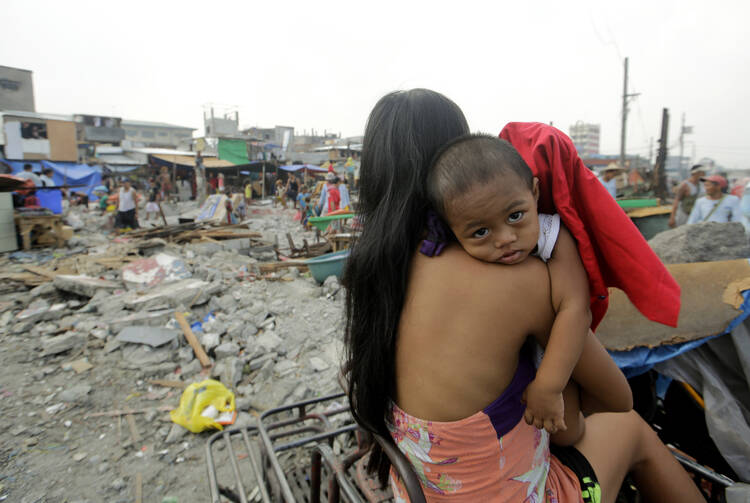Economist and activist Jeffrey D. Sachs argues that the UN’s sustainable development goals (SDGs), an ambitious plan to address ecological distress and worldwide poverty simultaneously, despite their seeming pie-in-the-sky ambitions, are eminently realizable. Speaking at a conference, “For the Planet and the Poor,” at the University of Notre Dame, Sachs noted that it is fine to make grand plans to end poverty, educate the world’s children and provide health care for all, but he worries that average people will be frustrated by such broad goals as too vague or impossible to attain.
But breaking down SDGs into specific targets and understanding that the resources are available to make them achievable, he argues, should make SDGs more comprehensible to people and a public buy-in on the process more reasonable. In 1961, Sachs points out, President John Kennedy set the goal of sending a man to the moon and returning him safely to earth; “NASA showed [the public] how to achieve it; took them 18 months to come up with a clear plan. By 1969 they accomplished it.
“The SDGs to my mind are the same; these are absolutely achievable."
What the public needs to do to help reach the SDGs is “pay attention,” Sachs said. “That’s not a sound bite; that’s important.”
Rich nations have resources to fix global poverty and ecological problems, he said, “but we’re distracted” and global resources are waylaid by a rigged tax system and, as the revelations from the Panama papers suggest, criminal tax evasion; government policy has been captured by special interests that stand in the way of progress. Overcoming those obstacles is the public’s job. “If we look and we think and we plan,” said Sachs, “we will find that what we want is within our reach.”
The conference was sponsored by the university’s new Keough School of Global Affairs—it will be opening its doors to students in August 2017 (full disclosure: I am also speaking at this conference); the conference brought Sachs and other global thinkers to Notre Dame this week to ponder the convergence of church teaching, particularly Pope Francis’s encyclical on the environment, “Laudato Si’: On Care for Our Common Home,” with current global plans to address ecological crisis and eliminate poverty.
In his presentation Sachs reported that Scandinavian countries are at the top of the list of the sustainable development goals and are also stand-outs, not coincidentally, on measures of happiness. These countries, he says, are prosperous but have high levels of social equity and comprehensive social welfare programs. They are also generous. They donate about 1 percent of national income (U.S. global aid contribution is a fraction of that) to assist in "universality," making basic social welfare—health, education, child care—available in low income states.
A stark contrast, says Sachs, is the United States, which is not in the top 20 of nations achieving SDGs despite its high income. “The United States is great on [creating] prosperity,” says Sachs, “but not so good at two other pillars of sustainable development”—social equity, sharing that prosperity, and the environment.
Sachs allows that the United States has made great strides on reducing air pollution, but it’s been “very bad on reducing climate change.”
“So bad,” he says, “that one political party denies it entirely, and the other agrees its happening but wrings its hand and does nothing.”
On reducing economic and social inequities, Sachs points to little effort on the part of U.S. politicians toward overcoming the historical roots of inequity and a “rigged” tax system that protects the wealthiest and reduces services to the most vulnerable. Rather than reducing inequities through health care, education and child care policies, the U.S. attitude instead seems to be: “If you’re poor in America, tough, that’s your problem in fact we want to cut your benefits more; if you’re rich in America, great, we’d like to cut your taxes more.
“That’s politics in America.”
He adds that the revelations emerging from the release of the Panama papers suggest that regarding global tax policy—and the resulting siphoning of resources away from addressing SDGs—“we live in a sea of criminality.”
But “the United States is smart, we’ve legalized it all; you can give as much as you want to the politicians” to influence policy on wealth distribution and fighting climate change.








